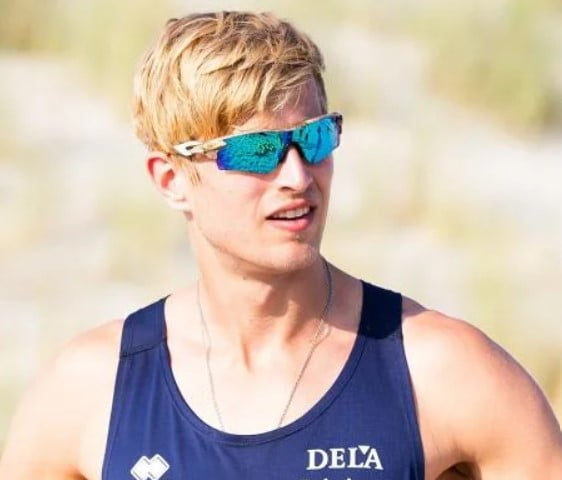An Unprecedented Olympic Entry
Steven van de Velde, a convicted child rapist, made his Olympic beach volleyball debut in Paris amidst a swirl of controversy and mixed reactions. Van de Velde, who served a four-year prison sentence starting in 2016 for raping a 12-year-old British girl, faced a mixed reception from the crowd at the Eiffel Tower Stadium. While some applauded, others audibly booed, reflecting the polarised opinions on his participation.
The Match and Public Reaction
Van de Velde and his partner, Matthew Immers, are currently ranked 10th in the world. They faced Italy’s Alex Ranghieri and Adrian Carambula, ranked 25th, and lost the match 2-1. The introduction of the Dutch pair drew both cheers and boos, highlighting the divided public sentiment.
The controversy surrounding Van de Velde’s inclusion has been significant. An online petition calling for his ban from the Olympics garnered 90,000 signatures before his debut match. Critics, including women’s and safeguarding groups, have vehemently opposed his participation, arguing that his presence contradicts the Olympic spirit.
Diverse Opinions
The reactions from fans were equally mixed. Some, like a British fan interviewed, acknowledged Van de Velde’s openness and the fact that he had served his time but felt another athlete should have been chosen to avoid controversy. Others were more direct, stating that his inclusion did not represent the Olympic values. A German fan expressed astonishment, saying Van de Velde should not be allowed to compete.
In contrast, some Dutch fans supported Van de Velde, asserting that he had paid his debt to society and deserved a chance to continue his life. Van de Velde’s partner, Immers, echoed this sentiment, emphasising their shared efforts and achievements over the past three years.
The Role of the IOC and NOC
The International Olympic Committee (IOC) clarified that the selection of athletes is the responsibility of individual National Olympic Committees (NOCs). The Dutch Olympic Committee (NOC) confirmed that Van de Velde had met all guidelines set by the Dutch Volleyball Federation (NeVoBo) for athletes to resume competition after conviction. The NOC emphasised that Van de Velde had undergone a specialist treatment program, met all risk assessment thresholds, and remained transparent about his past.
Mark Adams, IOC spokesperson, stated that while the IOC was not “comfortable” with the situation, the decision rested with the NOC, and they would continue with the current stance.
A Controversial Presence
Van de Velde’s selection has undoubtedly made many uncomfortable. The NOC’s decision and the IOC’s stance have faced significant backlash, with some fans expressing their refusal to support Van de Velde. Interestingly, every Dutch fan interviewed either supported Van de Velde or declined to comment on the matter.
A Complex Issue
The presence of Steven van de Velde at the 2024 Olympics has sparked a complex debate about justice, redemption, and the values upheld by the Olympic Games. While he has served his sentence and met all professional guidelines to return to his sport, the emotional and ethical implications of his participation continue to resonate deeply with the public. This controversy underscores the broader discussion about how societies integrate individuals with criminal pasts and the responsibilities of sporting bodies in such scenarios.
Further Reading




